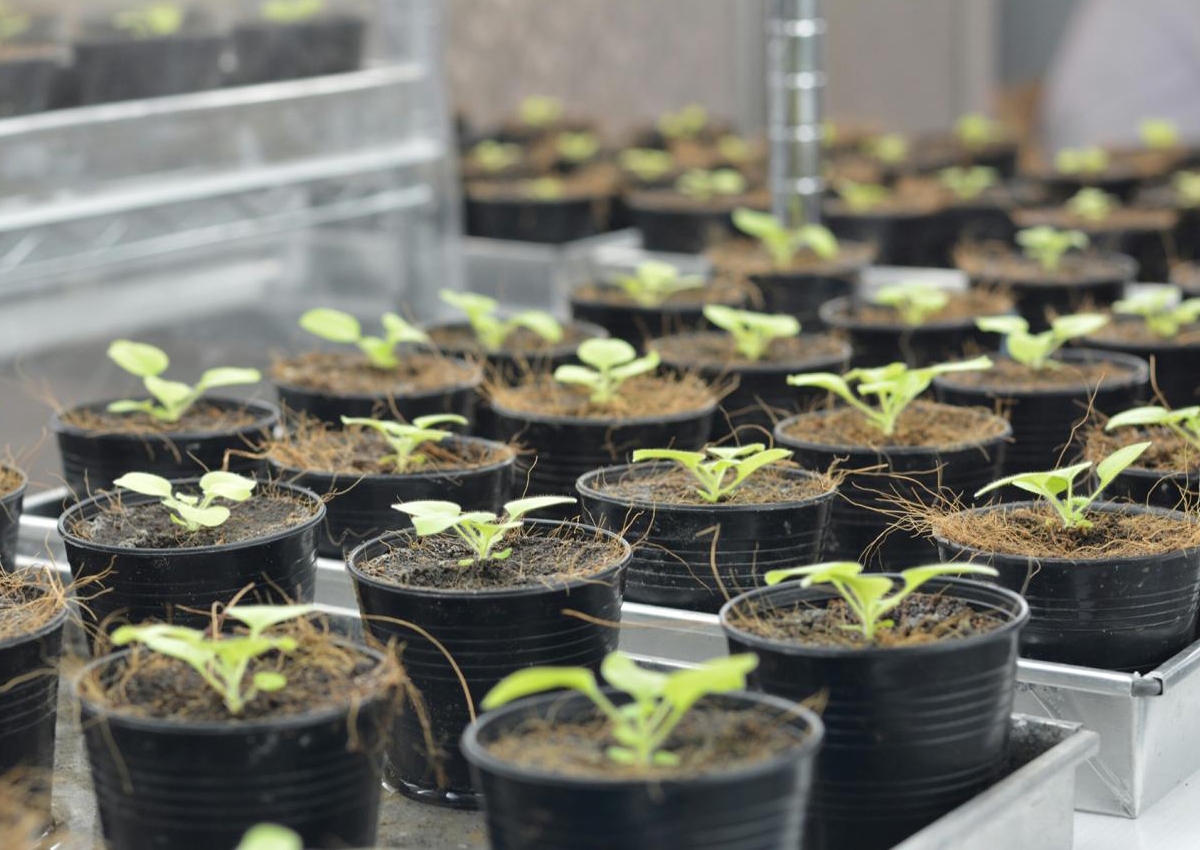
Engineered Tobacco Produces Moth Sex Pheromones
April 26, 2023| |
Researchers at the Earlham Institute in Norwich have turned tobacco plants into solar-powered factories for moth sex pheromones using genetic engineering techniques. The team engineered Nicotiana benthamiana to produce moth sex pheromones.
The team at Earlham Institute worked with scientists at the Plant Molecular and Cell Biology Institute in Valencia, Spain to engineer N. benthamiana, a species of tobacco, to produce the sex pheromones of two moths. N. benthamiana has previously been engineered to produce ebola antibodies and even coronavirus-like particles for use in COVID-19 vaccines.
Pheromones are chemicals that organisms use for communication. The research team built new DNA sequences to mimic the moth genes and introduced molecular switches to precisely regulate their expression. The team tested and refined the control of genes responsible for producing the mix of specific molecules that mimic the sex pheromones of moth species, including navel orangeworm and cotton bollworm moths.
They found that copper sulfate could be used to finely tune the activity of the genes to control both the timing and level of gene expression. Copper sulfate is a readily-available compound already approved for use in agriculture. They were even able to carefully control the production of different pheromone components, which allowed them to tweak the cocktail to better suit specific moth species. The researchers hope that their work will pave the way for using plants to produce more valuable natural products in the future.
For more details, read the news release in the Earlham Institute Newsroom.
| |
You might also like:
- Model Plant’s Genome Sequencing to Speed Up Plant Research
- Researchers Use NBTs to Develop Tobacco Plants as Biofactories
- CRISPR-Cas RNA Targeting Using Transient Cas13a Expression in Nicotiana benthamiana
Biotech Updates is a weekly newsletter of ISAAA, a not-for-profit organization. It is distributed for free to over 22,000 subscribers worldwide to inform them about the key developments in biosciences, especially in biotechnology. Your support will help us in our mission to feed the world with knowledge. You can help by donating as little as $10.
-
See more articles:
-
Plant
- Engineered Tobacco Produces Moth Sex Pheromones
- CIMMYT Announces New Maize Hybrids from South Asia Breeding Program
- Farmer Leads Japan Biotech Crop Network to Promote GM Crops
- International Conference Tackles Commercialization and Trade of Gene-edited Products
- Spain’s CRAG Supports Updating of Regulations to Allow Genome Editing in Europe
-
Food
- India’s Aqua-feed Sector Can Benefit From GM Crops
- ISAAA Inc. to Equip Filipinos with Information on Homegrown Biotech Products
- Nestlé Launches Two Plant-based Chocolate Chip Flavors for Baking
-
Health
- Consuming Plant-based Meat Substitutes Lowers Cholesterol Levels
-
Read the latest: - Biotech Updates (February 18, 2026)
- Gene Editing Supplement (January 28, 2026)
- Gene Drive Supplement (February 22, 2023)
-
Subscribe to BU: - Share
- Tweet

